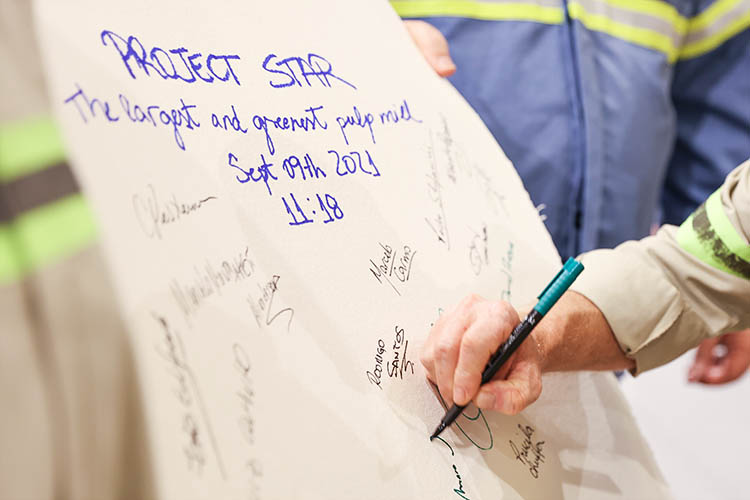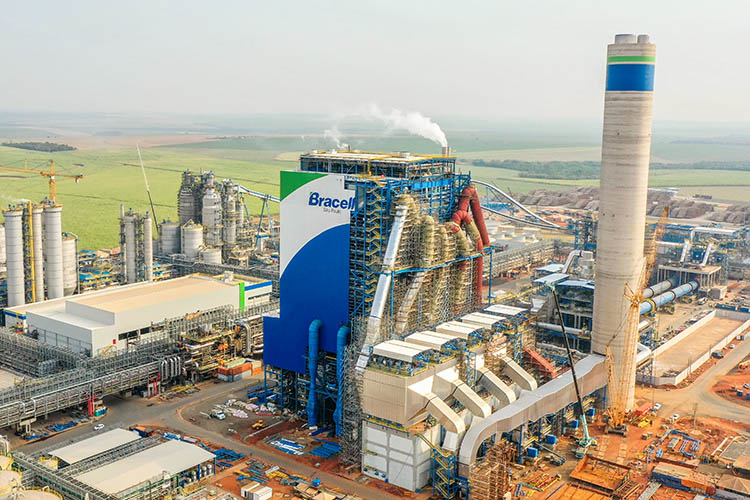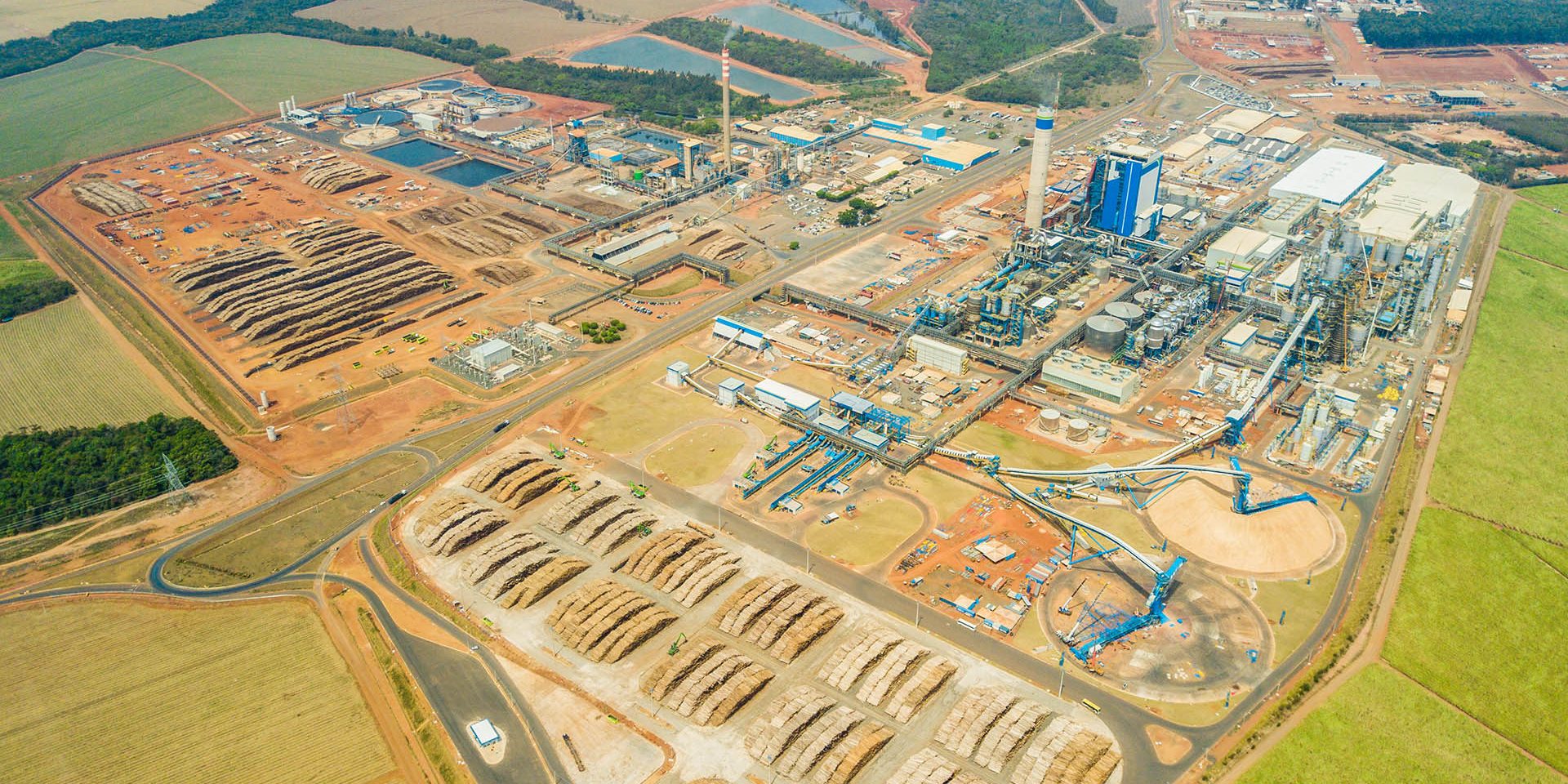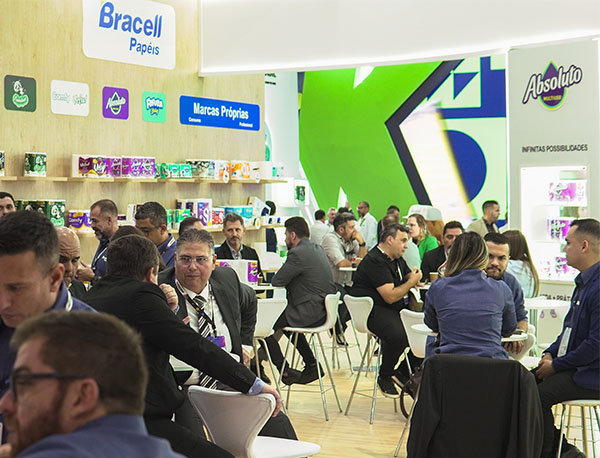Project Star, which is the world’s greatest and greener cellulose biofactory, gathers the most advanced and innovative features to reach the highest levels of sustainability in its production processes
Bracell has just started the operations of its new plant, Project Star, with the production of the first cellulose sheet, the initial stage of the plant’s learning curve. The startup enabled the implementation of the bold expansion project of the company in the State of São Paulo, which will diversify and increase the plant’s product to 1.5 million tons of soluble cellulose or up to 3 million tons of kraft cellulose a year. With the startup of the operations, the company is now the world’s greatest soluble cellulose producer.

“Bracell is proud to be the pioneer in building a new generation cellulose plant, which will delivery flexible and biodegradable products using cutting-edge technology. We have the biggest recovery boiler of the world and the first biomass gasifier of the Pulp and Paper industry in operation in South America. These and other investments towards sustainable development and circular economy reflect our concern with the climate, the community and the country,” says Per Lindblom, vice-president of Bracell.
The new plant was built with two lines that operate in a flexible manner. In the next two years, the production plan will be prepared based on stages, focusing on the operational stability of both of these lines. After this period, these lines will be used for the production of soluble cellulose or Kraft cellulose, according to the company’s demands.
Bracell is part of RGE group, that manages global manufacturing operation companies based on natural resources. In this regard, a significant part of the soluble cellulose produced in the new plant will be used internally for the implementation of the group’s expansion plans. In relation to Kraft cellulose, a portion of the production will be allocated to the expansion of the RGE’s paper and cardboard plant in China. The excess production will be sold to international clients, especially in Europe and in the United States.
After the expansion is concluded, the operation will permanently employ approximately 6,650 workers, either directly or outsourced, to perform industrial, forest and logistics activities. During the entire construction process and operation, Bracell chose to hire local manpower.

Sustainable Industry
The technologies employed in Project Star make an impression, especially with respect to the investment to reduce the environmental impacts and make production more sustainable. With the greatest and greener Recovery Boiler of the world, the plant will receive the biggest biomass gasifier of the America to support the operation of the lime kiln. In addition, the gasification plant will use 100% renewable biomass as its raw material to produce biogas. In relation to eucalyptus, Bracell’s main raw material, the trees are planted in areas that were either previously used as pasture or degraded, which helps with the absorption of carbon dioxide from the atmosphere, thus contributing to climate.
Also, Bracell greatly focuses on the generation and distribution of clean electric power to the plant’s operations. Since the process to produce cellulose generates by-products that can be reused, the company has made the strategic decision to invest in cutting-edge equipment and technology in its process cycles. Bracell has built a new 440kV substation that is connected to GIS technology (Insufflated Gas). The installed capacity of this substation is 420 MW, and it is powered by three turbogenerators that are sufficient to meet the plant’s demand and that allow the transfer to the National Interconnected System (Sistema Interligado Nacional – SIN) of approximately 150 MW to 180 MW of excessive power from renewable sources, without the emission of Greenhouse Gas, which is sufficient to power 750,000 residences or approximately 3 million people.
Production outflow
Cellulose produced in the new plant is transported by trucks, trains and ships. The first cargo will be transported by truck from Lençóis Paulista to an intermodal terminal in the city of Pederneiras. When the plant is in full operation, an average of 150 trucks a day will be used to transport cargo in this itinerary. Cargo will be transported by train from the Pederneiras’ terminal to the Port of Santos, which are about 510 kilometers away, which course will take five days, round trip. Cargo will be transported in 463 trains acquired by Bracell.
About Bracell
Bracell is one of the greatest soluble cellulose and specialty cellulose producers of the world, with two operations in Brazil, one in Camaçari, in the State of Bahia, and another in Lençóis Paulista, in the State of São Paulo. In addition to its operations in Brazil, Bracell has an administrative office in Singapore and sales offices in Asia, Europe and United States.
About RGE
RGE Pte Ltd manages a group of global manufacturing operation companies based on natural resources. Their activities range from the development and harvesting of sustainable resources to the creation of several products that add value to the global market. RGE group’s commitment to sustainable development is the basis of its operations. All of its efforts are towards what is good for the community, good for the country, good for the climate, good for the client, and good for the company. RGE was founded in 1973 and its assets currently exceed US$ 20 billion. With over 60,000 employees, the group has operations in Indonesia, China, Brazil, Spain, and Canada, and continues to expand to new markets and communities. www.rgei.com



